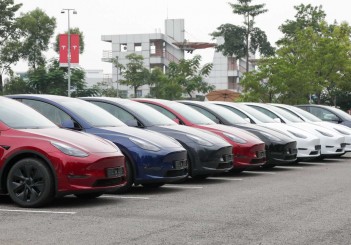SINGAPORE: BMW Group and Nanyang Technological University (NTU Singapore) have launched a new electromobility research programme, involving the all-electric i3 and plug-in hybrid sports car i8 that runs on electricity and petrol.
This new research programme will be conducted at the Future Mobility Research Lab located on the NTU campus, which is the BMW Group’s first joint lab in Southeast Asia.
Both parties will be injecting a combined S$1.3 million to drive the new research projects, on top of the initial S$5.5 million funding allocated to the joint lab in 2013.
The new research programme will focus on two new areas, Electromobility in Asia and also Smart Materials. This is in addition to the original three research topics that the joint lab is working on: Advanced Battery, Driver Enhancement and Intelligent Mobility.
At the launch ceremony last Tuesday, the BMW Group announced that the i3 and i8 will be provided as research platforms to the Future Mobility Research Lab.
The scientists at the joint lab will use the two i vehicles to conduct research on real-life driver behaviour and to collect in-depth data on vehicle performance. The two cars will also conduct on-road trials of new technologies such as a mobile application that can accurately predict traffic and estimated end-to-end travelling time.
"The NTU-BMW joint lab has already made important advancements in areas such as new battery materials that can extend the range of an electric vehicle and innovative driver assistive technologies to greatly enhance safety,” said Professor Lam Khin Yong, NTU’s Chief of Staff and Vice President (Research)
“NTU is one of the eight top universities across the globe that BMW has established a strategic partnership with. The BMW i3 and i8 will be used by BMW and NTU scientists to develop and test innovative technologies in real-life conditions and this new research programme extends NTU’s efforts in developing future mobility solutions with global impact,” said Prof Lam.










